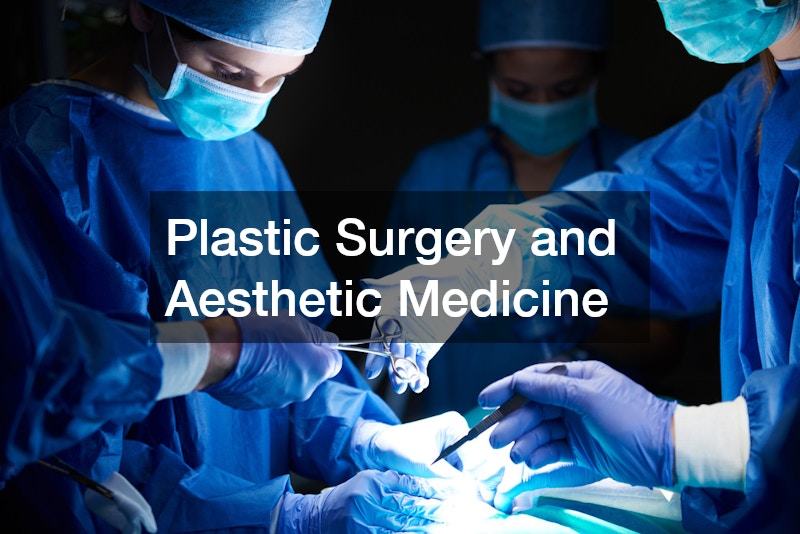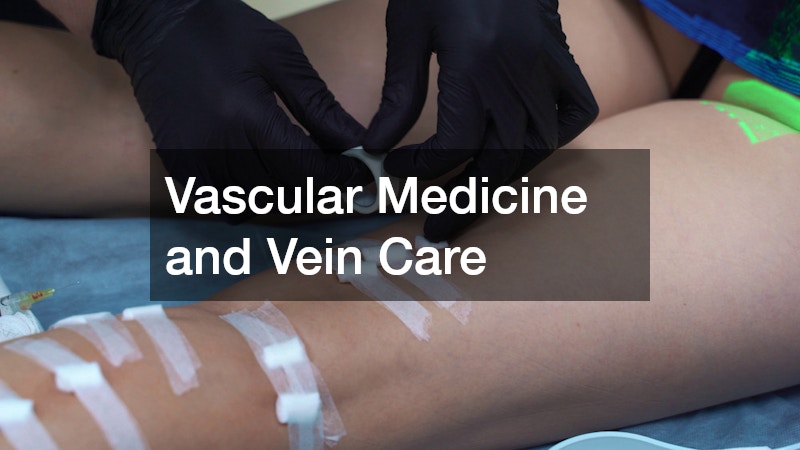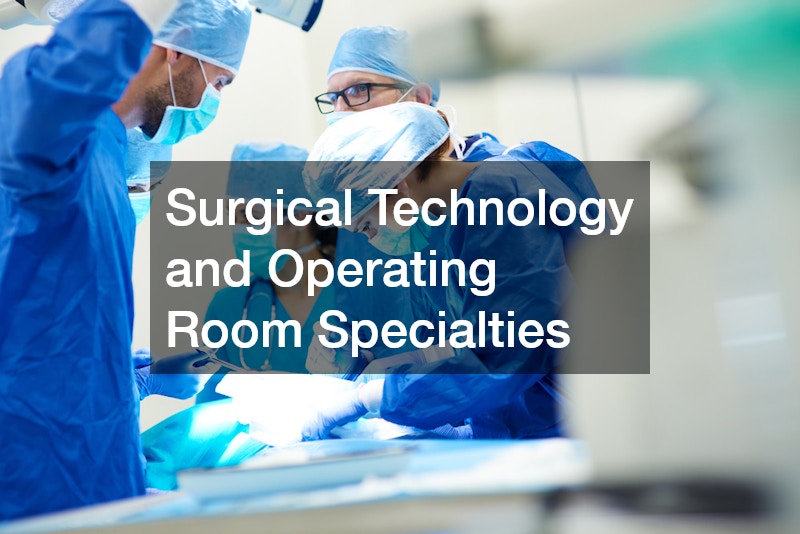Choosing a medical specialty is one of the most important decisions a future doctor will make. The choice can shape the course of their career, influence their lifestyle, and determine how they impact patients’ lives. With so many options available, it can feel overwhelming to decide which path to follow. Each specialty offers unique challenges, rewards, and opportunities for growth, making it crucial for students to carefully consider their interests, strengths, and long-term goals.
Exploring the best specialties early on allows medical students to tailor their education, research experiences, and clinical rotations toward their chosen path. Some specialties focus on surgical precision, while others emphasize long-term patient relationships or technological innovation. By understanding what each field involves, students can make informed choices that align with both their professional ambitions and personal values.
Plastic Surgery and Aesthetic Medicine
Plastic surgery is one of the most competitive and rewarding fields in medicine. This specialty combines technical skill, artistry, and innovation to help patients enhance their appearance or recover from injuries. Physicians in this field work on a wide range of cases, from reconstructive surgeries after trauma to cosmetic enhancements that boost confidence. Plastic surgery often appeals to students who are detail-oriented, creative, and passionate about achieving transformative results for their patients. It’s also a specialty that offers opportunities for research, cutting-edge procedures, and interdisciplinary collaboration.
One example of a procedure within this field is the Brazilian butt lift, a popular cosmetic enhancement that demonstrates the blend of medical expertise and aesthetic vision required for success in plastic surgery. Surgeons performing these types of procedures must master advanced techniques to ensure patient safety and deliver natural-looking outcomes. As one of the best specialties for students interested in combining surgical precision with artistic expression, plastic surgery can lead to a highly rewarding and dynamic career.
Reconstructive and Cosmetic Breast Surgery
Reconstructive and cosmetic breast surgery is a subspecialty within plastic surgery that focuses on procedures aimed at reshaping, reconstructing, or enhancing the breast area. This field offers a unique combination of technical complexity and emotional impact, as many patients seek these procedures for both functional and aesthetic reasons. Physicians in this specialty often help individuals recovering from mastectomies, correcting congenital abnormalities, or pursuing cosmetic changes to improve self-image. The work requires a deep understanding of anatomy, precision in surgical technique, and sensitivity to patients’ personal goals.
Surgeons who specialize in procedures such as breast implants often work closely with patients to create individualized treatment plans. These consultations involve careful discussions about desired results, safety considerations, and recovery expectations. For medical students who want to specialize in a field that blends reconstructive care with aesthetic enhancement, breast surgery stands out as one of the best specialties. It offers both clinical variety and the opportunity to make a lasting impact on patients’ physical and emotional well-being.
Vascular Medicine and Vein Care
Vascular medicine focuses on the diagnosis and treatment of conditions affecting the circulatory system, particularly veins and arteries. This specialty is ideal for students who enjoy problem-solving and working with complex systems of the body. Physicians in this field often help patients manage chronic conditions, improve circulation, and prevent serious complications like blood clots or stroke. It is a field that combines elements of internal medicine, surgery, and imaging, making it a dynamic and intellectually engaging choice for future doctors.
One area of growing demand within this specialty involves vein treatment services, which address common issues like varicose veins, venous insufficiency, and spider veins. Treatments may include minimally invasive procedures such as sclerotherapy, laser therapy, or endovenous ablation. For students interested in pursuing one of the best specialties that blends clinical care with advanced technology, vascular medicine offers both career stability and the opportunity to significantly improve patients’ quality of life.
Telemedicine and Digital Health
Telemedicine has rapidly transformed the way healthcare is delivered, making virtual care an increasingly important part of modern medicine. This specialty focuses on leveraging digital tools to provide remote consultations, monitor chronic conditions, and deliver timely interventions without requiring in-person visits. It’s well-suited for students who are interested in technology, accessibility, and innovation. Physicians working in this field often play a key role in expanding healthcare access, particularly for patients in rural or underserved areas.
Virtual care has opened new possibilities for specialties across the medical field, from primary care to mental health and chronic disease management. Doctors working in this space use secure video platforms, remote monitoring devices, and digital health records to provide effective treatment and follow-up. As one of the best specialties for future doctors who want to combine clinical expertise with technological innovation, telemedicine offers flexibility, growing demand, and the chance to shape the future of healthcare delivery.
Surgical Technology and Operating Room Specialties
For students who thrive in high-pressure environments and enjoy hands-on work, surgical specialties offer an exciting and challenging career path. Surgeons and operating room specialists work on complex cases that require precision, teamwork, and quick decision-making. This field attracts individuals who are passionate about direct intervention and seeing immediate results from their work. Surgical specialties range widely, from general surgery to highly specific fields like neurosurgery or cardiovascular surgery, each offering unique challenges and rewards.
Enrolling in a surgical technologist program during or after medical school can provide valuable exposure to the operating room environment. Understanding the tools, workflows, and procedures involved in surgery gives students a head start and helps them determine which surgical path suits their skills and interests best. Surgical specialties remain among the best specialties for students who are dedicated, resilient, and eager to make a direct impact on patients’ health through innovative and life-saving procedures.
Ophthalmology and Vision Care
Ophthalmology is a specialty dedicated to diagnosing, treating, and preventing disorders of the eyes and visual system. It blends medical expertise with delicate surgical skills, making it a compelling choice for students who enjoy both clinical practice and precise procedures. Ophthalmologists often manage chronic conditions like glaucoma and cataracts, perform corrective surgeries such as LASIK, and help patients maintain their vision throughout their lives. This field attracts those who value long-term patient relationships, measurable outcomes, and the opportunity to improve one of the most vital senses—sight.
Many ophthalmologists begin their careers working in or alongside an optometry office to gain early clinical experience and understand how eye care fits into the broader medical landscape. They may collaborate with optometrists to provide comprehensive vision care, ranging from routine exams to advanced surgeries. As one of the best specialties for medical students interested in combining technical skill with significant quality-of-life improvements, ophthalmology offers both professional satisfaction and excellent long-term career prospects. Additionally, it provides a balance of clinical and surgical work, making it a well-rounded specialty.
Chiropractic and Musculoskeletal Medicine
While chiropractic care is traditionally a separate discipline, many medical professionals specialize in musculoskeletal medicine and collaborate closely with chiropractors to address back pain, spinal issues, and related conditions. This specialty focuses on diagnosing and managing disorders involving muscles, bones, joints, and connective tissues. It appeals to students who are interested in anatomy, biomechanics, and helping patients improve mobility and function through noninvasive methods. Musculoskeletal medicine plays a crucial role in helping patients recover from injuries, manage chronic pain, and maintain overall physical health.
Collaborating with a local chiropractor can give physicians valuable insight into spinal manipulation techniques and complementary approaches to musculoskeletal health. Doctors in this field often work in multidisciplinary clinics that combine physical therapy, chiropractic adjustments, and medical treatments to provide holistic care. As one of the best specialties for students drawn to hands-on patient interactions and functional rehabilitation, musculoskeletal medicine offers flexibility, strong patient demand, and the ability to make a meaningful impact on quality of life.
Physical Medicine and Rehabilitation
Physical medicine and rehabilitation (PM&R), also known as physiatry, is a specialty focused on restoring function and improving quality of life for patients recovering from illness, injury, or surgery. Physicians in this field help individuals regain mobility, strength, and independence through tailored rehabilitation programs. This specialty is ideal for students who are empathetic, patient-focused, and interested in long-term recovery processes rather than acute interventions. PM&R physicians often work with multidisciplinary teams, including physical therapists, occupational therapists, and pain specialists, to develop comprehensive treatment plans.
For example, working with car accident chiropractors can be part of a rehabilitation plan to support patients dealing with injuries like whiplash or spinal misalignments after motor vehicle accidents. PM&R specialists may oversee these collaborative efforts, ensuring that all aspects of recovery are addressed, from physical healing to pain management. As one of the best specialties for students who value teamwork, continuity of care, and tangible patient progress, rehabilitation medicine offers a deeply rewarding and impactful career path. It also provides opportunities to work in hospitals, private practices, or rehabilitation centers, allowing for a wide range of career options.
Anesthesiology and Medical Gas Management
Anesthesiology is a highly specialized field that focuses on patient safety and comfort during surgical procedures. Anesthesiologists play a critical role before, during, and after surgery by administering anesthesia, monitoring vital signs, and managing pain. This specialty demands a deep understanding of physiology, pharmacology, and emergency medicine, making it ideal for students who are detail-oriented and thrive in high-stakes environments. Anesthesiology also offers diverse career opportunities, including surgical anesthesia, pain management, critical care, and research.
One important aspect of this specialty involves the use of medical gas service systems, which are essential for delivering anesthesia safely and efficiently in operating rooms. Anesthesiologists work closely with surgical teams to ensure the proper use and maintenance of these systems, which support patient ventilation and gas delivery throughout procedures. Mastery of these technologies is crucial for providing reliable anesthesia care and responding swiftly to emergencies. As one of the best specialties for students who enjoy working with precision, technology, and critical decision-making, anesthesiology provides a challenging yet highly rewarding medical career path.
Psychiatry and Mental Health Support
Psychiatry focuses on diagnosing, treating, and preventing mental health disorders, making it one of the most impactful and rapidly evolving specialties in medicine. Unlike some other fields that rely heavily on procedures, psychiatry emphasizes communication, empathy, and long-term patient relationships. Psychiatrists work with individuals experiencing a wide range of conditions, including anxiety, depression, mood disorders, addiction, and schizophrenia. This field attracts medical students who are interested in the human mind, enjoy problem-solving, and want to make a meaningful difference in their patients’ lives.
Mental health counseling often plays a vital role in psychiatric care, with psychiatrists frequently collaborating with therapists, psychologists, and social workers to create comprehensive treatment plans. The integration of counseling and medication management allows for a more holistic approach to patient well-being. As one of the best specialties for students who are compassionate, thoughtful, and interested in the psychological aspects of medicine, psychiatry offers diverse opportunities for research, clinical practice, and advocacy. It is also a growing field with increasing societal recognition of the importance of mental health care, providing excellent job security and long-term career satisfaction.
Deciding on a medical specialty is a pivotal step for every future doctor, shaping not only their career trajectory but also their personal fulfillment and lifestyle. Medical students today have a vast array of options, from procedure-heavy surgical fields to patient-centered specialties focused on long-term care. Exploring these paths early can provide valuable clarity and direction, allowing students to tailor their medical school experiences—such as electives, research, and clinical rotations—to align with their goals. The best specialties often reflect a balance between a student’s personal interests, their skill set, and their vision for the kind of impact they want to make in healthcare.
Plastic surgery and reconstructive breast surgery are excellent choices for those who enjoy artistry, innovation, and transformative patient outcomes. Vascular medicine and telemedicine appeal to students who value technological advancement and systemic thinking, while surgical specialties attract those who thrive in high-intensity, hands-on environments. Ophthalmology, chiropractic and musculoskeletal medicine, and physical rehabilitation focus on improving quality of life through targeted interventions and long-term patient care. Each of these specialties offers unique opportunities for growth, innovation, and meaningful contributions to patient well-being.
Meanwhile, fields like anesthesiology and psychiatry highlight the critical importance of precision, collaboration, and empathy in medicine. Anesthesiology provides a behind-the-scenes but life-saving role in surgical care, while psychiatry focuses on the human mind and addresses some of society’s most pressing health challenges. Both specialties offer stability, intellectual stimulation, and opportunities for innovation. Additionally, emerging areas like telemedicine and virtual care are expanding the boundaries of traditional medical practice, making them exciting frontiers for students with a passion for technology and accessibility.
When evaluating options, medical students should consider several factors: personal interest in the subject matter, desired work-life balance, salary expectations, required training length, and opportunities for future specialization. Shadowing physicians, participating in specialty interest groups, and seeking mentorship can also provide invaluable insights. Importantly, students should remember that their first instinct isn’t always their final decision—many find their perfect fit after hands-on clinical exposure or research experiences during medical school.
Ultimately, the “best” specialty is the one that aligns with who you are as both a clinician and an individual. Whether you’re drawn to high-pressure surgical environments, long-term patient relationships, cutting-edge technology, or mental health advocacy, there is a field that fits your strengths and aspirations. By approaching this decision thoughtfully and exploring all possibilities, medical students can set themselves on a fulfilling path that allows them to make meaningful contributions to the world of healthcare for decades to come.






